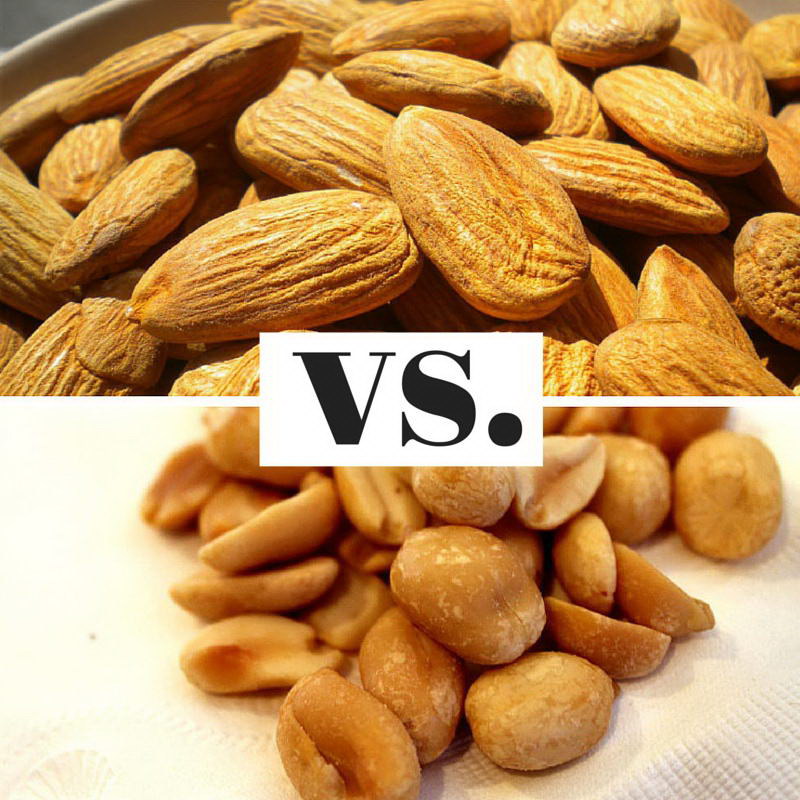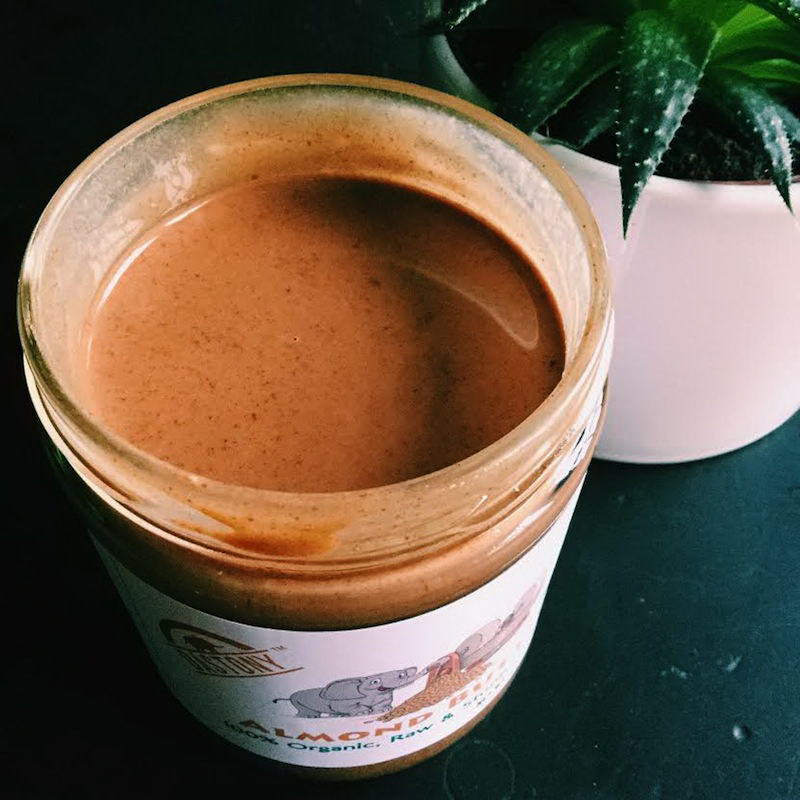Nut Butter Wars: Almond vs. Peanut // 5 Reasons Why We Choose Almond Butter
- By Anna Speaks
- Sep 12, 2016

Image credit: almonds: Flickr Commons, peanuts: Flickr Commons
Now, before we get into this blog, let us just say that we're not trying to be haters. Peanut butter isn't evil, and as long as there's no peanut allergy involved, can definitely be incorporated into a healthy plant based diet. However, that being said, there's a reason why health conscious folks are substituting America's beloved PB with other alternatives, most notably, almond butter. If you're already a lover of our stone ground Dastony nut butters, you've likely noticed that we don't make a peanut butter at all, and that's mainly because we want to ensure that more people can enjoy our nut butters, even those with peanut allergies. But there are a few other reasons too...
Here's our top 5 reasons why almond butter will always win out for us.

1. More Nutrition
While peanut butter is known for its protein content, it actually comes in 2nd place against almond butter in terms of some critical micro-nutrients such as antioxidant all-star Vitamin E and minerals calcium, iron, potassium, magnesium, and zinc. Almond butter has less protein per gram than peanut butter, but only by a smidge at 6 grams per gram as opposed to 7 with peanut butter,
2. Less Allergenic
With peanut allergies on the rise (about 3 times as many children have allergies to peanuts when compared to 20 years ago), many parents are discovering almond butter as a safer and equally delicious alternative. Peanuts are not technically tree nuts, but are rather legumes, so a peanut allergy doesn't always equate to a tree nut allergy. While tree nuts do pose another allergen risk for many people, peanut allergies are still more common, and can even be fatal if serious enough.
4. Aflatoxin-Free
Certain crops, peanuts being one of the major culprits, are very susceptible to fungal contamination. A toxin released by fungus known as alflatoxin is a major issue in peanuts, and has been linked to various diseases. Aflatoxins aren't currently regulated by the FDA, so its really up to the consumer to make wise calls about what foods are most likely contaminated. Many health experts believe that the molds and funguses found in peanuts may actually be the cause of allergy symptoms, not the peanuts themselves.
3. Less Acidic
While almonds are known for being one of the most alkaline nuts, peanuts are actually on the opposite spectrum: they're more acidic. While our diets don't need to be composed of 100% alkaline forming foods, most of us could use more alkalinity in the form of raw fruits, vegetables, nuts, seeds, and sprouted foods to help buffer acidity caused by stress, dehydration, indulgences in sugar or alcohol, and less-than-fresh food choices.
5. More Versatile
While there's no doubt peanut butter has many uses ranging from a smoothie add-in, to PB&J's, and even sauces, almond butter can be used in exactly the same ways, and we think even more because it is a subtler flavor. If you add peanut butter to a smoothie, you'll know it's in there, however with almond butter, it will lend a slightly nutty and sweet flavor, but mainly it will just add richness and creaminess.
Check out our silky smooth, 100% organic and single ingredient stone ground almond butter HERE.




